🧵 on recent Pew Research into gender issues:
Most Americans want some trans protections in law but an increasing number think “gender” is determined by sex
If gender here is only meant to mean “being a man or a woman” it might suggest critical thinking is kicking back in
Most Americans want some trans protections in law but an increasing number think “gender” is determined by sex
If gender here is only meant to mean “being a man or a woman” it might suggest critical thinking is kicking back in
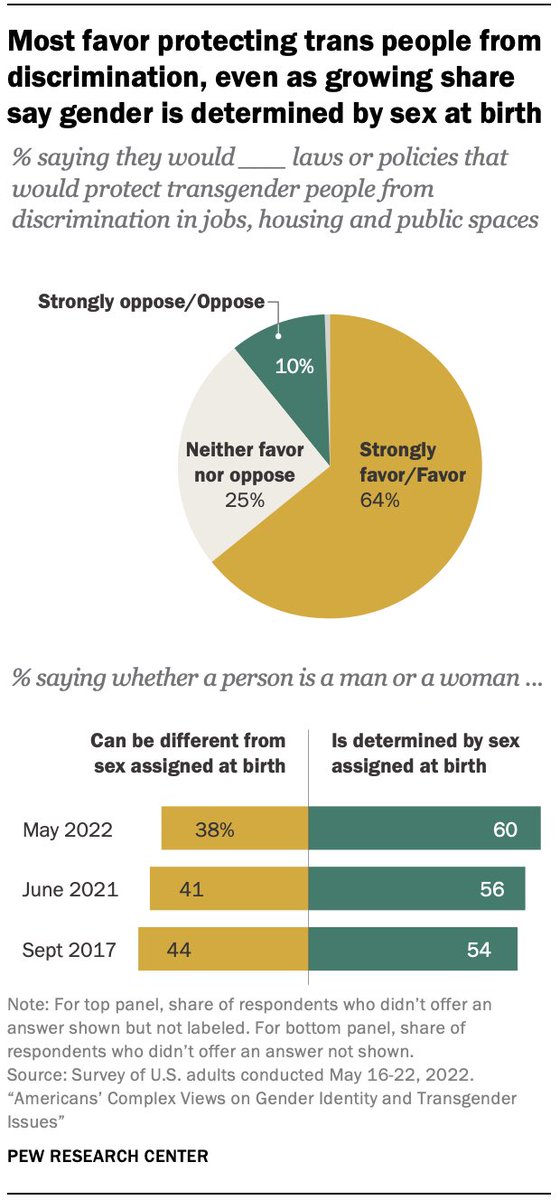
There’s more uncertainty around whether or not society has gone far enough in accepting trans people with a tiny bit more, overall saying things have gone too far.
18-29 year olds are most likely to say American society hasn’t gone far enough.
18-29 year olds are most likely to say American society hasn’t gone far enough.

Black people are more likely to believe sex determines “gender” followed closely by white people
When it comes to education a majority at all levels believe this, as well,but those with a Bachelor’s degree are a bit less likely to
Being Dem is most linked to thinking otherwise
When it comes to education a majority at all levels believe this, as well,but those with a Bachelor’s degree are a bit less likely to
Being Dem is most linked to thinking otherwise
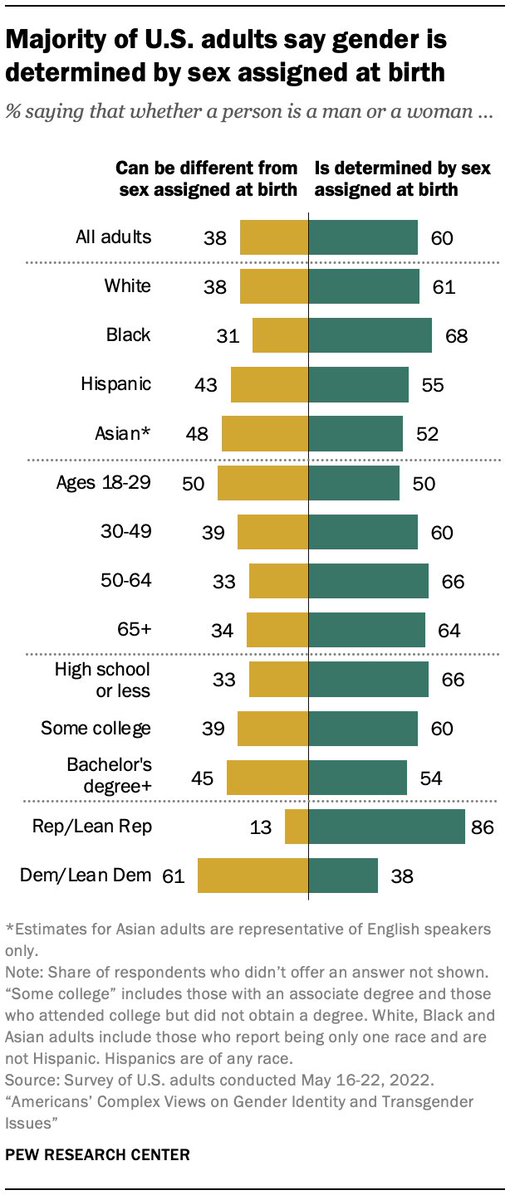
Science has been the biggest influence on people’s views. This makes sense as people trust science.
So it’s important science remains science&doesn’t turn into “science”
I think this underscores the medical profession does have culpability for how derailed things have become
So it’s important science remains science&doesn’t turn into “science”
I think this underscores the medical profession does have culpability for how derailed things have become

Most Americans think discrimination is an issue in the US which, given there is housing&employment discrimination against those who identify as trans in America,seems spot on
A plurality believe social acceptance of trans people is low.

A plurality believe social acceptance of trans people is low.
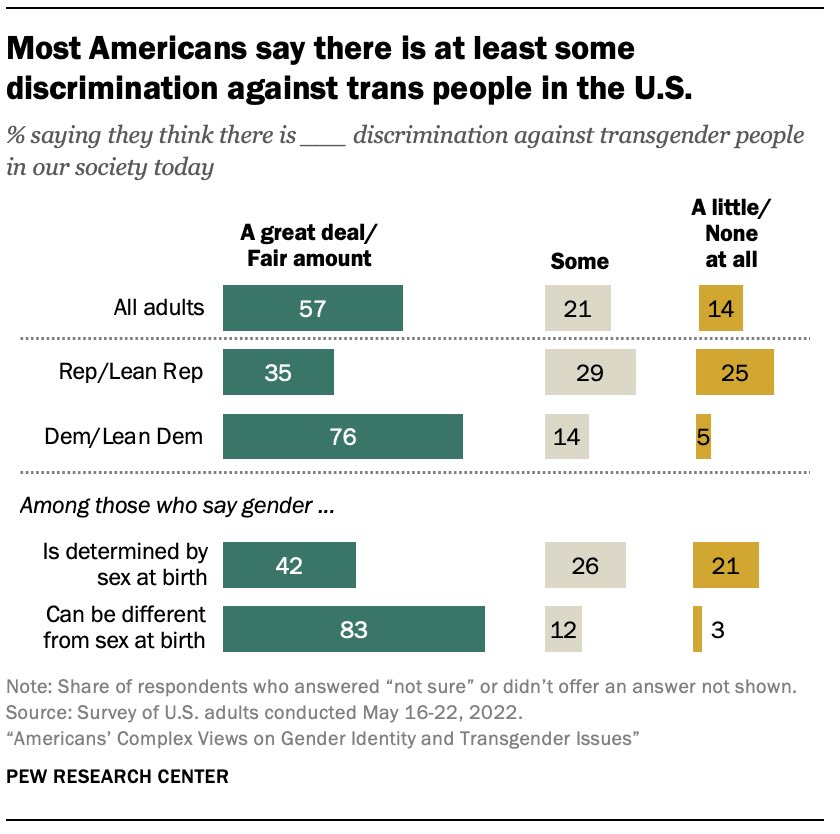
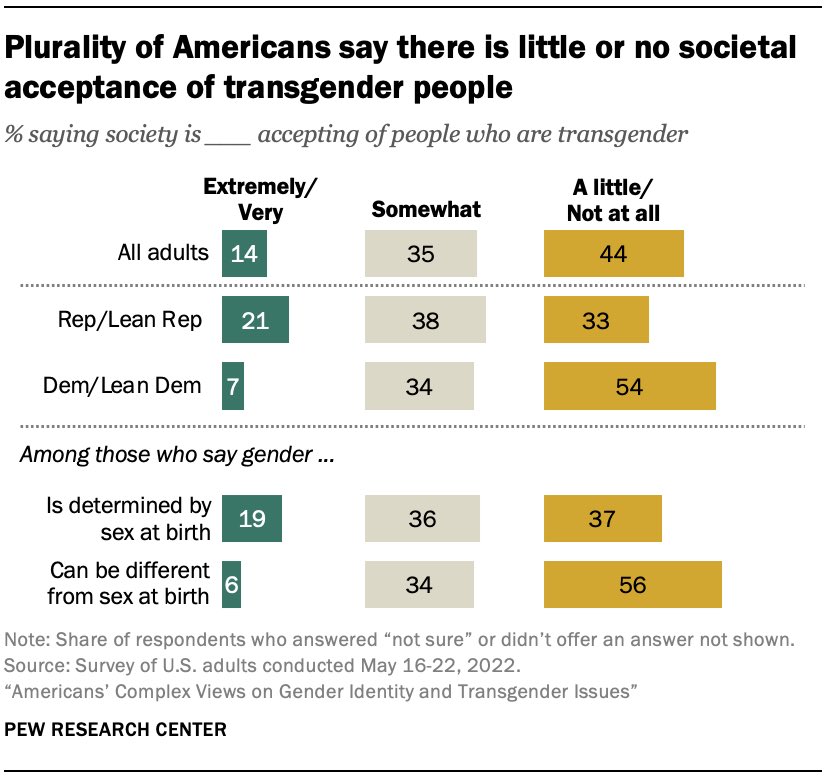
More ppl think it’s important to use a name chosen during transition than the number who think its important to use new pronouns
A majority are more ambivalent
Knowing a trans person makes someone more likely to say it matters but still less than half think pronouns are crucial

A majority are more ambivalent
Knowing a trans person makes someone more likely to say it matters but still less than half think pronouns are crucial
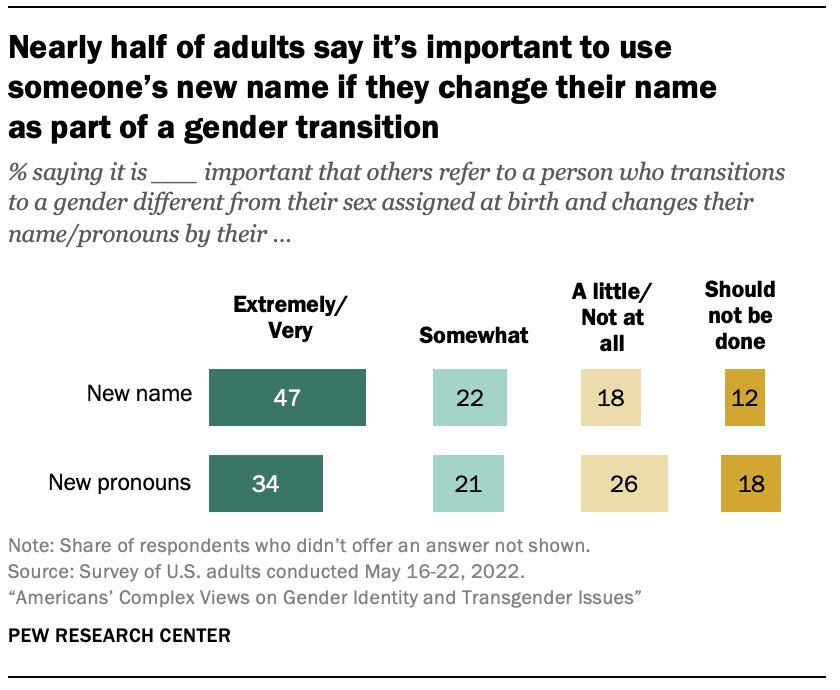
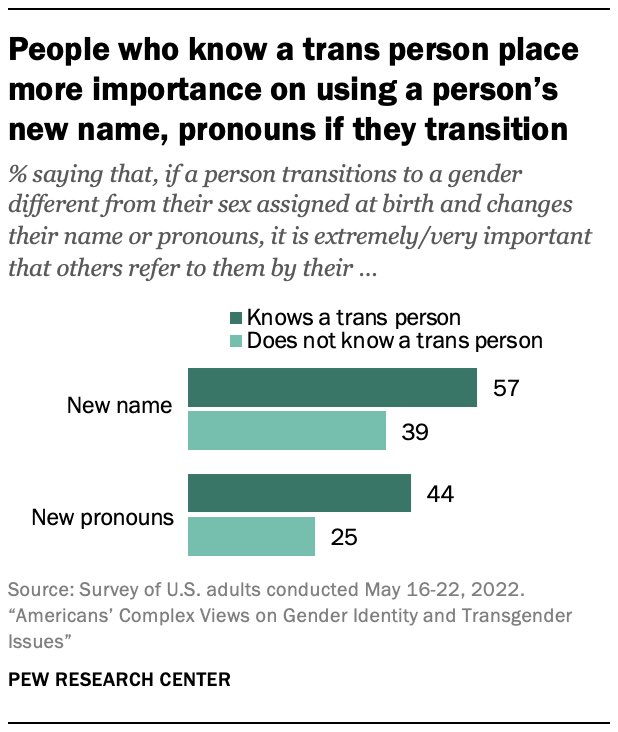
Most people are not paying close attention to bills around this issue. This is quite the problem for those of us trying to point out how stealthily sex is being rewritten in policy, and law, and how much harm is being done as a result of gender identity ideology. 
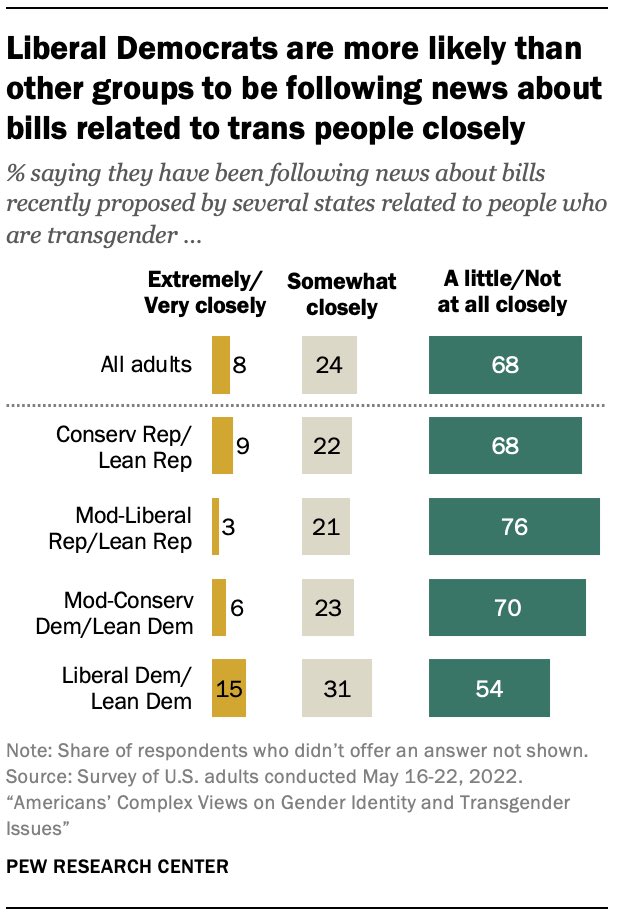
There’s huge public support for trans protections in jobs,housing&public space
A majority think sports should be sex based
There’s some support for banning childhood transition but less for investigating parents
&more people than not think public bathrooms should be sex based
A majority think sports should be sex based
There’s some support for banning childhood transition but less for investigating parents
&more people than not think public bathrooms should be sex based
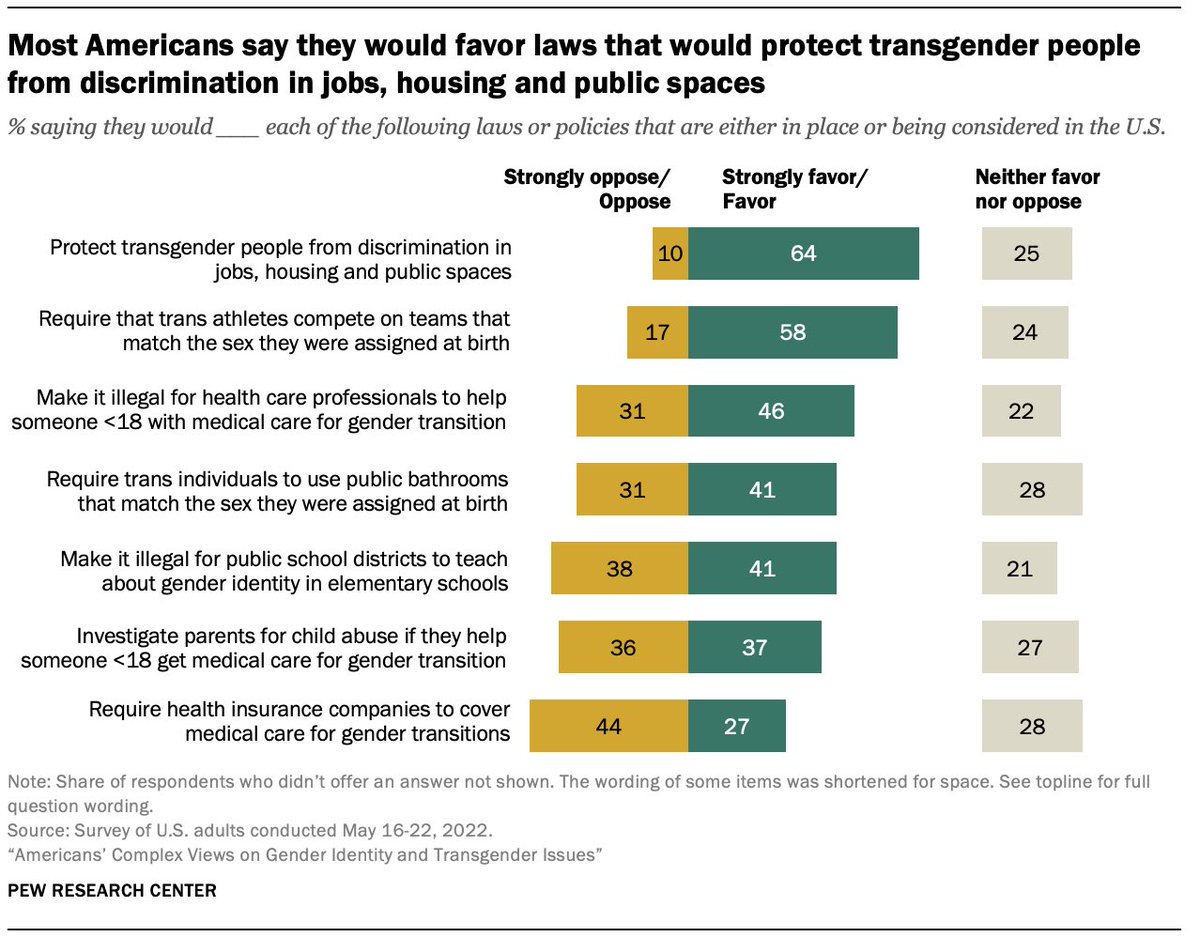
Some mixed opinions on whether children should be learning about trans issues in schools but a more people hold the idea it shouldn’t be taught in elementary schools and there are still some objections when it comes to teaching this in middle school. 
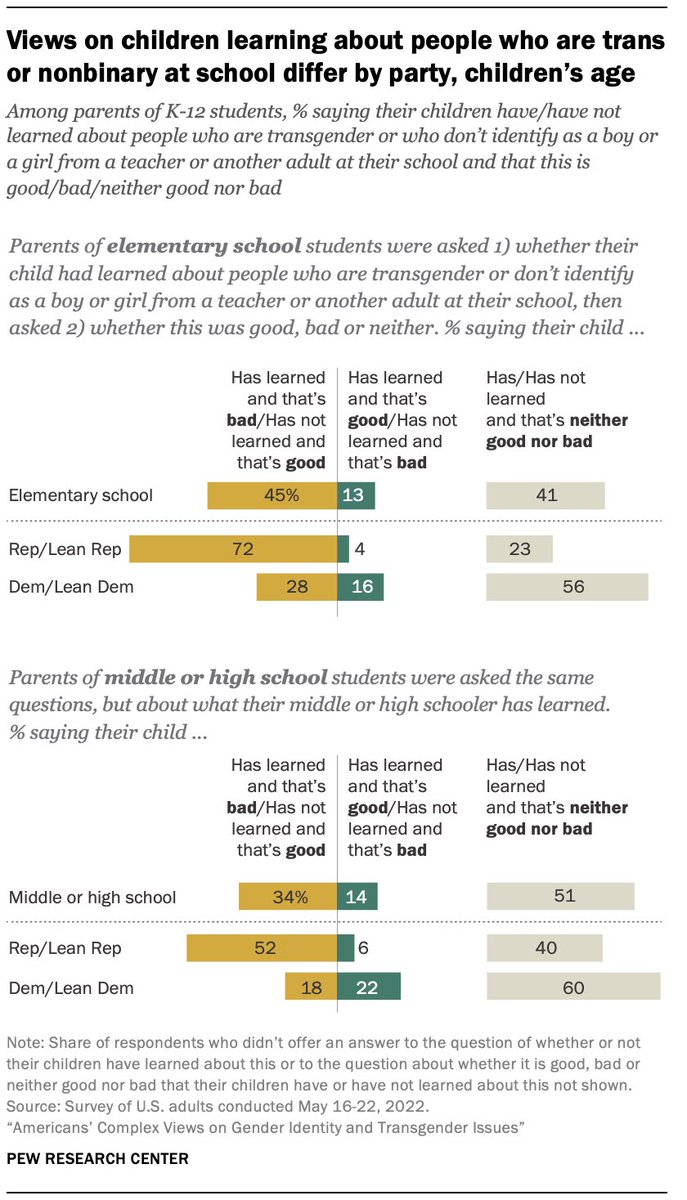
As with most serious looks at what people think this shows those yelling we’re fascists are an over-represented group trying to force everyone to go along with their ideas
That theyre succeeding is mainly because they’ve frightened many into silence&others arent paying attention
That theyre succeeding is mainly because they’ve frightened many into silence&others arent paying attention
Most people care about trans people but don’t seem to believe the tenets of the current ideology around them.
There’s some uncertainty about what “gender” means to the people who answer these questions.
Sex, on the other hand, is clearly still significant to most people.
There’s some uncertainty about what “gender” means to the people who answer these questions.
Sex, on the other hand, is clearly still significant to most people.
You can see these results and more here.
Definitely worth a full read:
pewresearch.org/social-trends/…
Definitely worth a full read:
pewresearch.org/social-trends/…
• • •
Missing some Tweet in this thread? You can try to
force a refresh









